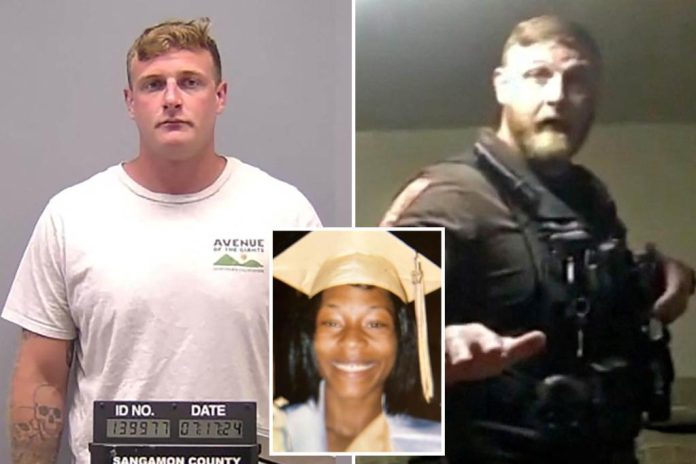The Deadly Indifference: When Will Enough Be Enough? The Murder of Sonya Massey by Deputy Sean Grayson
The recent killing of Sonya Massey by Deputy Sean Grayson is a heartbreaking and infuriating testament to a system that continually fails Black Americans. The gut-wrenching details of her murder—shot in her own home by a man who should never have worn a badge—highlight a pattern of violence that has become all too familiar. But where is the outrage? Where is the national and international uproar for another Black life unjustly taken?
Grayson, a former soldier discharged for serious misconduct, a man with multiple DUIs, and a history of poor decision-making under stress, was somehow deemed fit to serve and protect. His checkered past, spanning from the Army to several law enforcement agencies, paints a clear picture of a person unfit for the responsibilities of a sheriff’s deputy. Yet, he was hired. Not only hired but armed and sent into communities to uphold the law. The very system meant to protect us is killing us.
How can we continue to tolerate this? How can we turn a blind eye as another name gets added to the long list of unarmed Black individuals—Breonna Taylor, Atatiana Jefferson, and now Sonya Massey—slain in their homes by those sworn to protect them? Massey’s death is not an isolated incident; it’s a grim reminder of the pervasive issue of police brutality and systemic racism within our law enforcement agencies.
Massey’s last moments, caught on bodycam footage, are beyond disturbing. Grayson’s response to her rebuke, “I’ll fking shoot you in the fking face,” followed by the fatal shots, and his cold dismissal of rendering aid—“Nah, she’s done”—exemplify a callousness that should shock us to our cores. Yet, the collective response feels muted. Where are the voices of those not directly impacted by these tragedies? Where is the solidarity from people of all races, demanding justice and systemic change?
The silence of our non-Black neighbors and the lack of sustained outrage from the broader community perpetuate this cycle of violence. We cannot become numb to these deaths. Each loss is a human being—a mother, a sister, a friend, a neighbor. We must channel our anger into action, demanding accountability and reform. It is unacceptable for individuals with such troubling backgrounds as Grayson’s to slip through the cracks and be given a gun and a badge.
Massey’s family, especially her son Malachi, now faces a future forever altered by Grayson’s heinous act. Their grief is compounded by the knowledge that Grayson’s history of misconduct was no secret. His DUIs, his reckless behavior, and his need for high-stress decision-making classes were all documented. Yet, he was still employed as a law enforcement officer. This failure in vetting and accountability is not just gross negligence—it is a crime against every person who trusts the police to serve and protect.
We must demand more from our law enforcement agencies. Comprehensive background checks, continuous psychological evaluations, and a zero-tolerance policy for misconduct must become standard practice. The hiring of individuals like Grayson, with known violent and irresponsible tendencies, must end.
In the face of such blatant injustice, we must not remain silent. We must amplify our voices, push for legislative changes, and support organizations fighting against police brutality. We owe it to Sonya Massey, to Malachi, and to every Black person living in fear of those who are supposed to protect them. Enough is enough. It’s time for real change.
So what do we do? We can ensure this message is printed and published online and in print, keeping the spotlight on this critical issue. We can continue writing and raising awareness, but that alone is not enough. We have marched, but did it work? Did it slow things down or deter officers from killing us? ONE more is TWO many.
The internet is a powerful tool. It can dig into every detail from countless perspectives to uncover the truth of almost anything or anyone with our nation’s access to public information. Government entities might hide behind the confidentiality of hiring records, but the internet will not. The people are standing up to protect and serve our citizens from the police. Bringing officer’s bad past to light BEFORE they kill someone is an ability we are able to achieve. The hiring of law enforcement is flawed. We must respond with action. A new, in-depth movement to research these so-called ‘protectors’ is taking shape nationwide. We will serve, and we will seek justice—past, present, and future.








